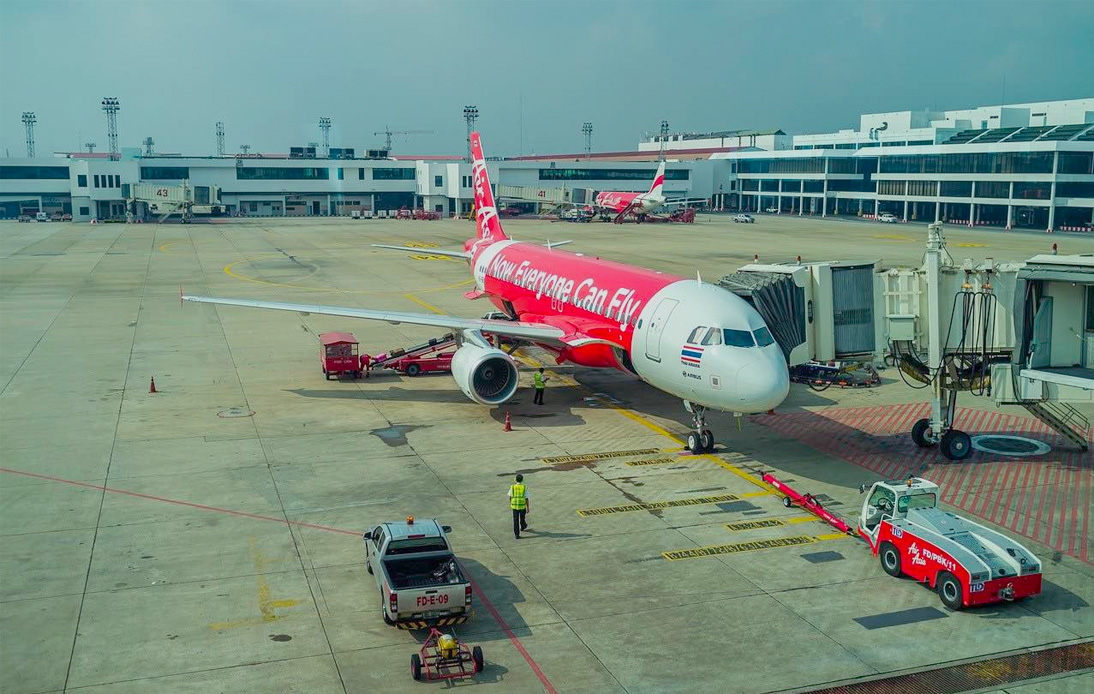
The Civil Aviation Authority of Thailand (CAAT) has been directed by the Transport Ministry to expand airport slots in anticipation of a rise in foreign visitors this summer beginning in April.
Slots are permissions granted by airport operators to airlines for specific takeoff and landing times.
Transport Minister Suriya Jungrungreangkit announced plans on Saturday to increase the availability of these slots, aiming to boost the country’s flight traffic.
This initiative will include major airports like Suvarnabhumi, Don Mueang, Chiang Mai, and Phuket, as well as other airports across the nation.
The CAAT expects to boost flight slots by 30–40% to cater to growing demand, according to the minister.
“The CAAT was instructed to work with Airports of Thailand (AoT) and airline operators to manage slot allocations during rush hour,” he said.
“An increase in flight slots will have positive effects as it will boost the number of passengers.”
Mr. Suriya stated the ministry’s anticipation that the aviation sector will persist in its recovery and soon return to the passenger levels seen before the Covid-19 pandemic.
Globally, airlines are seeking new aircraft to renew and expand their fleets post-pandemic, but manufacturers currently can’t meet this demand.
In the coming years, more aircraft will become available, leading to expansion in the aviation industry, as per Minister Suriya.
He also mentioned that Chiang Mai International Airport now operates 24/7 due to the government’s economic stimulus measures.
Regarding local opposition to extended airport hours, Minister Suriya said AoT is taking steps to address the concerns of those impacted.
Residents have been vocal about the disturbances caused by noise and vibrations from increased air traffic.
Suttipong Kongpool, director-general of the CAAT, noted a 74% increase in airline passengers compared to 2019, pre-pandemic.
He is confident that passenger numbers will return to the 2019 level of 162 million, especially with an anticipated surge in foreign visitors in the latter half of the year, fueled by Chinese and Indian tourists.
Despite Thailand’s visa-free policy, Chinese tourists are hesitant to travel abroad immediately due to domestic economic challenges and Beijing’s push for local tourism.
Nevertheless, Chinese outbound travel is expected to rise in the latter half of the year.
Puttipong Prasarttong-Osoth, president of the Airlines Association of Thailand, agrees, noting that tourism incentives usually show quick results.
He pointed out that the visa exemption for Chinese tourists coincides with China’s economic struggles, which might delay their travel plans. However, he anticipates an increase in flight bookings later this year.
Since becoming minister, Mr. Suriya has committed to enhancing Thailand’s transport infrastructure, focusing on rail, maritime, and air travel.
More airlines are planning to operate in Thailand. Mr. Suriya intends to request that Defence Minister Sutin Klungsang release unused flight slots held by the Royal Thai Air Force at AoT-managed airports.
This action would enable an additional 100 to 150 commercial flights daily at these airports. The allocation of slots will be adjusted to meet demand, with commercial airlines currently in need of slots held by the RTAF.
The CAAT is responsible for assigning slots based on the capacity of each airport.




















